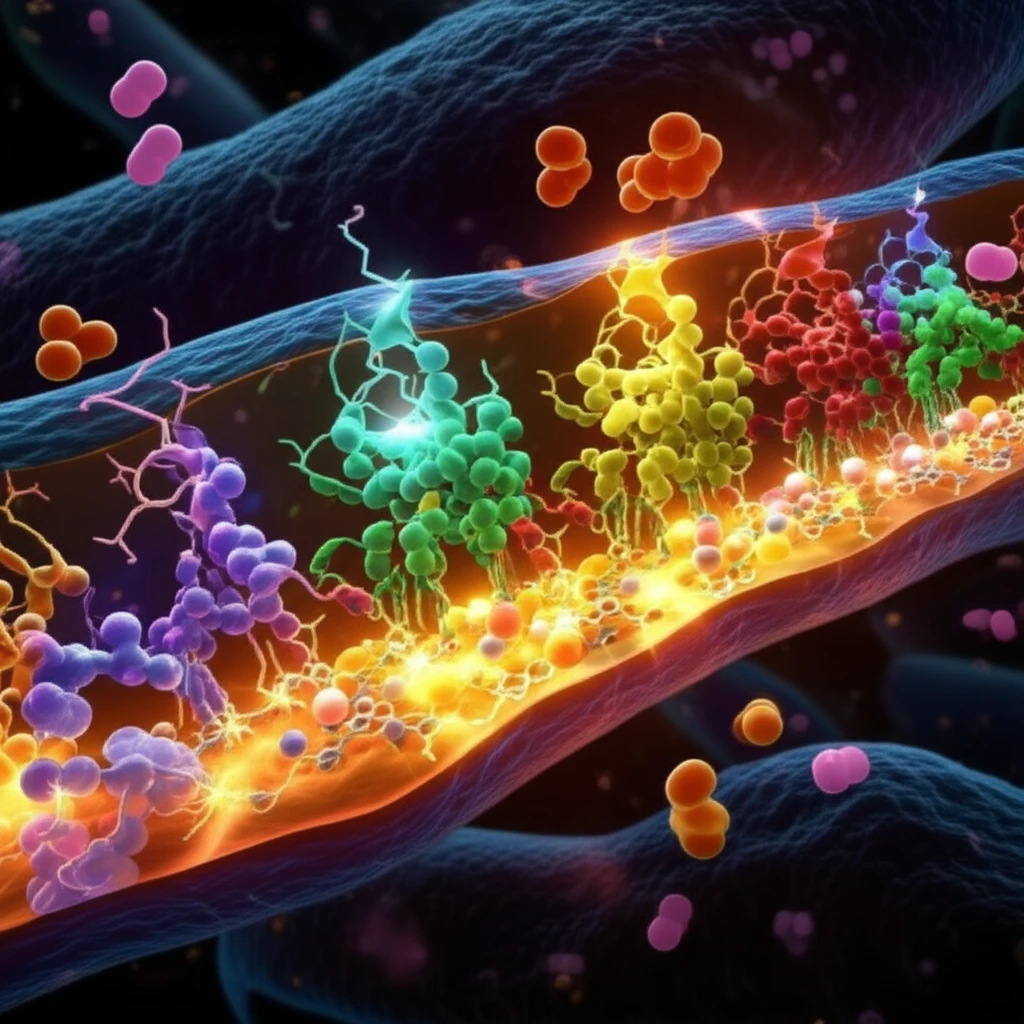
Supercharge Natural Product Production: How 'Tandem ACP' Engineering Could Revolutionize Drug Discovery
"Scientists have discovered a way to significantly boost the production of crucial compounds by tweaking the machinery of bacterial cells, potentially unlocking access to a new wave of life-saving medications."
Imagine a world where life-saving medications are easier and cheaper to produce. Many of the drugs we rely on, like antibiotics and anti-cancer treatments, originally come from natural sources like bacteria and fungi. These natural compounds, called polyketides, are created by complex cellular machinery, but often in very small quantities, making drug development a real challenge.
One major hurdle is scaling up production to get enough of these compounds for research and clinical trials. Traditional methods often fall short, leaving a vast number of potential drugs unexplored. But what if we could engineer these natural production lines to work faster and more efficiently?
That's exactly what scientists are working on. Recent research has uncovered a promising technique called 'tandem ACP' engineering. This approach focuses on modifying the protein 'assembly lines' within cells to ramp up the production of valuable compounds. Let's dive into how this works and why it could be a game-changer for drug discovery.
Unlocking Nature's Pharmacy: The Power of Polyketides

Polyketides are a diverse group of natural compounds produced by plants, fungi, and bacteria. Their complex structures give them a wide range of biological activities, making them invaluable in medicine. Many well-known drugs are derived from polyketides, including:
- Erythromycin (antibiotic)
- Streptomycin (antibiotic)
- Doxorubicin (anti-cancer)
The Future of Drug Production: A New Era?
The development of tandem ACP engineering offers a powerful new strategy for enhancing the production of polyketides. By optimizing these natural assembly lines, scientists can overcome a major bottleneck in drug discovery and unlock the potential of countless natural compounds.
While this research is still in its early stages, the results are promising. The ability to increase polyketide production by several-fold could significantly accelerate the development of new drugs to combat a wide range of diseases. Further research is needed to fully understand the mechanisms involved and to optimize this technology for different polyketides, the absence of ketoreductase activity remains a challenge.
However, the future looks bright. With continued innovation, tandem ACP engineering could revolutionize the way we produce drugs, making life-saving medications more accessible and affordable for all.
